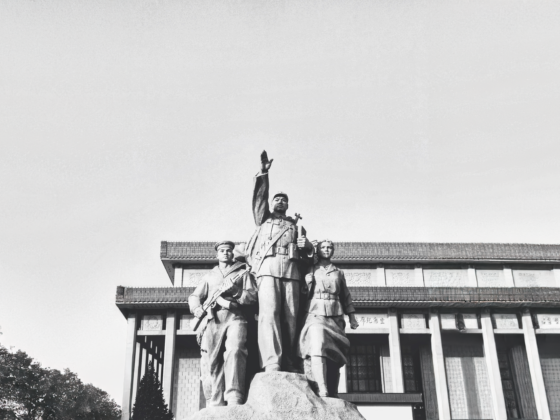When a mental health professional begins working with a client, there’s a common phrase which suggests the first course of action: “meet them where they are.” In essence, this means in order to help the person, you need to first understand how they conceptualize themselves, the problem they face, and possible solutions. Each person is unique in this way, even if their diagnosis and broad identity-group membership is similar to that of others. As such, the best course of action is to get to know the person in front of you as a whole, complete, unique person. This includes the client, their environment, their support systems, and cultural considerations. The core of therapy is empowering individuals to make changes in their lives, which often requires a heightened level of personal responsibility. The focus here is on the individual, not their identity group membership, because group membership does not accurately meet the client where they are. This is just one way the identity-focused Theory of Critical Social Justice (including, for instance, Critical Race Theory) goes wrong.
Consider intersectionality, for example. Kimberlé Crenshaw describes the theory as taking a macro-level approach, but macro-level work in therapy does not make for a sound therapeutic relationship (which happens to be the best predictor of positive therapy outcomes). If therapists reduced their clients to their identity groups, they miss out on the important specificities of the client that make them unique. As humans, we like to be understood; it feels good. But understanding a client in terms of their immutable characteristics (e.g., race, gender, sex) and tying these identities in their relation to socially constructed power struggles is hardly descriptive. And yet, Theory would have us believe this is sufficient information for myriad other assumptions for which there is little to no evidence. One of the best examples of how Theory misses the mark in relation to mental health is Jonathan Metzl’s Dying of Whiteness: How the Politics of Racial Resentment is Killing America’s Heartland. In his book, Metzl points to the fact that white men kill themselves at much higher rates than other groups because they commonly hold racist attitudes, which causes them to continue voting for politicians and advocating for policies which prevent stricter gun control. This explanation is insufficient at best and evil at worst.
What is the rhetoric of Theory capable of doing to the mental health of those who follow it? Continuing on a broad scale, there is clear evidence that the language and mentality is triggering and disempowering. Consider some of Theory’s diversity trainings, which commonly ask individuals of minority racial groups to center their racial identity, talk about racism at the workplace, and call unassuming white people “racists” guilty of “white supremacy.” This is often difficult for a relatively mentally well person to take on, but what happens when the person being called out is already struggling? We know that overwhelming feelings of guilt is a common symptom of depression, especially for women. To add accusations of racism based on a theory they know little to nothing about and manipulating a vulnerable person’s guilt and desire to do good is vile. A reasonable person might ponder what can happen internally for someone with a mental health condition when told they should feel the guilt and shame of the privilege they possess, the “racism” they perpetuate constantly, and their “complicity” in a system that actively and directly harms minorities. Similarly, asking someone to disclose prejudice or racism they’ve experienced in front of a crowd could certainly be harmful, especially if the memory is still traumatizing. Whether called out for racism or called to speak about experiences of racism, Theory’s tools applied on a broad scale can have real, negative consequences on mental health— especially if they lack the proper support systems to help make stay on track.
Proponents of Theory may argue, “you can still get to know the individual while also taking an intersectional lens.” To which one should ask, “What’s the point?” When it comes to conceptualizing the problem one has, a macro-level approach is not specific enough to do so with sufficient accuracy. And when it comes to solutions, intersectionality nor its Theoretical roots will be of much help because the Theories do not apply to individuals, opting instead for abstract groups. What Theory actually manages to get right can be much better delivered through applied universal liberalism, which fundamentally focuses on the individual. This implies a few key ideas, such as the idea of an objective reality that we can know things about.
Mental health professionals often work with individuals who are considered to be “out of touch with reality” in one form or another. There is a range in severity, of course. For example, a person with generalized anxiety disorder may be out of touch insofar as he has excessive worry about day-to-day stresses. In comparison, a person with some form of psychosis is more heavily out of touch with reality, in that she may see or hear things that are not there. And when we’re working with clients with depression, we often work to show them that reality is not as terrible as what their brains are telling them. The most heavily empirically supported therapy for mental health conditions is cognitive behavioral therapy (CBT), which has roots in stoic philosophy. The theory relies heavily on the assumption that objective reality both exists and we can know things about it. In many ways, CBT can be said to improve the mental health of clients because it trains them to better view objective reality. Clients who take on CBT can learn to challenge negative automatic thoughts (thought patterns that form over time which can cloud judgment and have the tendency to form our perceptions of an event, whether the event was good or bad, in a negative way). Clients can also learn about thinking errors they commonly use, such as filtering (magnifying negative details while filtering out positive details of a situation), black and white thinking (all-or-nothing fallacy), overgeneralizing, jumping to conclusions, catastrophizing, emotional reasoning, and mind-reading. Being wary of when we err through these cognitive distortions helps us actually think better, such that we are more likely to think more on-par with reality and view our circumstances in an accurate light. Theory simply does not fit—rejecting CBT’s theoretical underpinnings outright and working as a kind of reverse CBT in practice.
First and foremost, the idea that objective truth can be found is outright rejected by Theory, insisting instead that reality cannot be known by anyone and that knowledge relies upon claims to authority that are illegitimate and ultimately political. This follows from the view that in the eyes of postmodernism, each voice has its own truth which is no better than any other except as defined by Theory, and it is enhanced by Critical Theory and its radical egalitarianism, wherein one has more freedom to speak truth so long as they are of a sufficiently oppressed social group. How is a counselor to call out possible faulty logic or inconsistencies if reality does not matter?
Critical theories like these are also guilty of numerous thinking errors relevant to professionals of mental health, and thus to their patients.
- Black-and-white thinking: As seen in antiracism, proposed by Ibram X. Kendi in How To Be an Antiracist: “One endorses either the idea of a racial hierarchy as a racist, or racial equality as an antiracist.” There is clearly room for more nuance than is allowed in this statement. One can be non-racist, when we treat everyone as the unique individual they truly are, with their own thoughts, feelings, emotions, and actions, and we hold each person reasonably accountable for those actions based on the appropriate context.
- Catastrophizing: speech and words are legitimately violent. Pointing out an inconvenient truth is violence. To Theory, disagreeing with any of their premises is violence. “Concept creep” takes hold, and the original meaning of words lose their power as they are applied too broadly (see also, microaggressions).
- Filtering out the good, highlighting the bad: One of Theory’s favorite games to play.
- Step 1: Point at an institution of Western civilization
- Step 2: point at where it is not perfect
- Step 2b: ignore what it does well
- Step 3: Problematize it in a way that aligns with Theory
- Step 3b: read everything in the least charitable light
- Step 4: Infiltrate the institution with Motte & Bailey tactics
- Step 5: Take over and corrupt or dismantle from the inside
Just because Theory rightly points out where our institutions do indeed fail, this does not mean the correct next step is to tear down the entire institution. It is certainly possible to keep what works and let go of what is ineffective.
- Jumping to conclusions: Where there exists a group difference, Theory necessitates that the difference is due to sexism, racism, ableism, or another sinister plot formulated by those in “power.” In a just society that has thrived on the ability to conduct sound science, we can do better than this. We can control for factors that might contribute to a given group difference—and when we know we’ve controlled for all of these, and there still remains a difference, we can have a reasonable discussion and debate about how equity might be found.
- Emotional reasoning: Lived Experience is number one. Because objective reality does not exist and only uses appeals to “reality” when it is convenient, perceptions of lived experience steeped in emotional reasoning are to be unquestioned, especially by those with more privilege (see also, Position/Positionality). The “oppressed” person is able to see and understand more of the world, and the “oppressor” could never understand this position. Further, each person could only speak as a mouthpiece for their group, as socially identified because of the importance of standpoint epistemology, which tells us that one’s position within power structures determines how much and which knowledge(s) one has access to. Simply put, a straight, white female counselor would have far less access to knowledge(s) than a black, lesbian woman precisely because of their respective positions in relation to Theory’s beliefs about systemic dominance and oppression. Typically, mental health professionals listen to an individual’s lived experience, and from this we are mindful of what might be true and what the client might claim to be true but might be at risk of using thinking errors such as the ones described here. Through the lens of Theory, however, lived experience is the primary way knowledge is implicitly and explicitly said to be created. Theory also claims that lived experience goes deeper than the story one tells and includes experiences of alleged dominance and oppression experienced from social structures. The understanding of this dominance and oppression must be understood through Theory and a critical consciousness (see also, Wokeness). In other words, one’s lived experience must be filtered and spun through the lens of Theory before it gains “authenticity.” If a client from a marginalized population describes his own experiences, but it does not follow the rules of Theory, it does not count. Indeed, they may be said to be experiencing internalized oppression or internalized racism, or perhaps of “acting white.” As such, a person of a minority group cannot simply disagree with Theory’s claims but is said to be suffering from internalized oppression that they cannot yet see, and to help this person would be to show them how oppressed they truly are. This has sinister ramifications for mental health counseling. The role of a counselor is generally to help the client feel empowered to improve their circumstances, focus on what is within their control, and begin to live the life they wish. But when a counselor takes Theory to its logical end, the right thing to do would be to highlight how oppressed a client truly is, which fosters victimhood-centrality and a victimhood culture, wrongly suggesting that development of a critical consciousness is necessary.
- Mind-reading: Biases alleged to be held by those with privilege and power are often regarded as unseen and unacknowledged. To correct this false consciousness, one must cultivate a critical consciousness (that is, Wokeness), which allows them to see their bias. Emphasis on implicit bias is seen to prove Theory’s correctness in that they are the ones who really know what that bad person with false consciousness thinks.
This list of issues raises the question: how exactly would counseling work under Theory? A white counselor can never not be racist according to Robin DiAngelo, nor can anyone who is not actively antiracist in impact and not intention, as suggested by Ibram X. Kendi. Surely this would impact the therapeutic relationship and slow or stop progress if this were true. Why would any client want a counselor who holds racist views about their race? Why train anyone who does not subscribe fully to Theory to work with people of different cultures if it is true that the alternative is racism? Why train any counselor to work with a client who is more oppressed than they are if it is true that the counselor’s identity group leaves them with more power than the client, thus indicating the counselor could never understand the client?
Multicultural counseling competencies essentially suggest that counselors should keep an open mind and focus on the individual in front of them. They should work to keep their biases in check and never stop learning about and from the client. These competencies began reasonable enough. Through Motte & Bailey tactics, however, Theory has begun to show its true colors in much of the protocols helping professionals are to use in our work with diverse populations.
Consider how Robin DiAngelo’s conception of “white women’s tears” (White Fragility, chapter 11) would play out in a therapeutic setting. Suppose you are a counselor, and given the current climate surrounding race, a white woman comes to your office for help. She explains she’s just been through antiracism training at work, and is now experiencing increased anxiety and difficulty focusing. As she tells you the story, she begins to feel upset because she tries her best to not be racist but was informed she always has been and always will be. She begins to cry. Having been informed by DiAngelo in how to handle this, you state that her crying is actually making her racism worse. She is putting her fragility on full display and doing so “recenters white pain” which can “get black men killed.” Further, the client’s emotions themselves are political and recenter whiteness. This suggests only the pain, hurt, and trauma of some people, but not others, are valid. This idea is as helpful as telling someone with depression to “just be happy, someone has it worse than you do” and would do serious harm to the client. This, of course, directly violates the “Do no harm” clause in almost any code of conduct a mental health professional is required to follow.
This example symbolizes the slogan “the personal is political,” which has been popular amongst proponents of Theory. However, in therapy this simply cannot be the case. What is hurting a client is not innately tethered to their political views, nor are they tied inextricably to their group identities, no matter how the complexities of intersectionality theory attempt to show they are. A client is not the culmination of their group identities. Instead, they are individuals who, while indeed experiencing culture and societal influences, have the ability to think for themselves, and are not to be reduced to their social group identities. To recognize someone as anything less than an individual or view them as political abstractions is to deny them their full humanity, and to deny them this is to deny them the ability to harness their full power.













22 comments
Therapy is ultimately about empowering individuals to make positive changes in their lives by understanding and addressing their unique needs. By prioritizing the individual over broad identity categories, mental health professionals can create a more inclusive and effective therapeutic environment. Thank you for highlighting this important aspect of therapy.
I was a certified Psychiatric Therapist in the 1980s and most of this was foreign to me. I specialized in psychotic physiologically based disorders Axis 1 and 2 though and this is about behavioral disorders.
So, I have virtually no expertise relevant to this subject and wouldn’t comment except that I’m old enough to have become familiar in college with those pioneering theorists on “neurosis”, the Freudians, Jungians, neo-Freudians and Skinnerian Behaviorists were the main counseling professionals I interacted with. And the Psychotherapy approach was the rising trend.
The comments on this Critical Social Justice theory sounds a lot like … I think his name was Malevich, the leading influence in psychology in the Soviet Union and resembles some of the Neo-Freudians in that they were evolving into social-psychological theorists, applying analytic templates to social issues.
I think there is validity in these approaches, but only when critically analyzed in the model of alternative theories of social psychology. They were “constructs” through which social environmental differences were viewed.
“Intersectionality” would not meet that criterion. That is applying the same construct to different issues. Not different constructs to the same issue.
My dominant opinion on this is that the identification of templates through which to view a social context is a matter of interpretive art with little if any relationship to science. And it has only a superficial relationship to individual therapy.
Suggesting social psychological theory to an individual is most likely to encourage them to see their issues in the terms very dubious social constructs and not in the terms of their individual experience. Therefore, it distracts from their obtaining personal insight and would constitute malpractice.
There are generalizations and then there’s what has been attempted here.
Hyper-general-exaggeration-alizations.
Lumping theoretical forms in an incomplete ideological enemy allows the “lumper” to assumptively offer a comprehensive response to a question not asked.
It seems the “theory” here has made victims out of all.
Theory proper can liberate, illuminate, but does not subjugate. *from a counselor in training using Critical Theory to form a critique of counseling, capital and csjrt.
Spot on.
I’m not a counseling professional like many on this thread, but it has always been clear to me that it’s incredibly insensitive to tell an entire group of people that they have never suffered (which is what the doctrine of privilege is, essentially). That is truly the opposite of everything counseling stands for. Of course the two cannot go together.
I recently returned to school to begin a second career as a therapist and I cannot believe at how much of the course material centers around CRT. I appreciate this article because it says all of the things that are in my head as I am slamming it on the table.
I found this article because I was looking for an organization of therapists that is against CRT, is there one? Can we form one? I have dues I will pay… I would love to network and learn from more therapists practicing explicitly without CRT.
One tongue in cheek “pro” of CRT is that it must be good for business: client is told nothing is his/her fault because they are a victim, client leaves feeling good, goes into the world and continues to act like the miserable person they are (maybe more so because they have been emboldened), things continue to get worse, client returns to office, client is reassured that nothing is their fault, client feels good, cycle continues… therapist’s job is easy and they make bank!
Any updates on networking opportunities/groups?
I am a counseling graduate student, currently in my second semester. I can echo everything Don has said about the presence of CRT in my training. (When White Fragility is required reading, you know there’s a serious problem.) It was so incredibly validating for me to find this article today and see all the responses of like-minded people.
I feel quite isolated in my program and would love to network with like-minded people. I would also be happy to pay dues!
White Fragility is required reading for your counseling education? Unbelievable…
BTW – there was a commenter who used to frequent these sections, ID’d as “Cal” who was clearly a therapist. I haven’t seen comments from them for a while now but maybe they’d be a starting point for the type of network group you’re seeking.
Very lucidly written, thanks for this writing and publishing this article.
CSJ is designed to produce activists, not healthy individuals.
It produces them by a form of parasitism.
Therapy has an anti-dote: think for yourself.
As Mr Dreesman wrote:
“they are individuals who, while indeed experiencing culture and societal influences, have the ability to think for themselves”
So-called Identity Politics removes individuality and parasitises the remnants of a human being.
Therapy aims to help a person become fully themselves.
They are diametrically opposed.
Therefore in my opinion there can be no ‘CSJ’ school of therapy.
Simply outstanding piece of work. From one licensed mental health therapist to another. Every time I try to read Marxist Critical Race Theory my mind cannot take in the insanity and the evil within it that makes slaves of those who succumb to it. It’s actually a form of religious abuse except that the deity is the state.
Many thanks to tis author in bringing forth an important dimension of the negative effects of CSJ culture. Since this way of thinking is being increasingly centered in our culture, I think it also negatively impacts our collective level of mental health. Here is a satirical skit (for me it’s actually more eerie and painful than funny) that exemplifies what a CSJ “therapy” session might look like:
https://youtu.be/MCdM1TIQilU
Thank you for this. I was raised by a CBT therapist who, while very empathetic, insisted that I keep things in perspective and take responsibility for my feelings and relationships. I thank my lucky stars, because it is SO EASY to get sucked into the vortex of feeling victimized and construing every little thing through that lens. I’ve been there. It’s an awful place. We aren’t doing people any favors by affirming that mindset.
And it destroys your relationships. Emotional reasoning is narcissistic. For a relationship to work, you have to acknowledge that other people’s feelings and perceptions may be valid too. If your feelings dictate truth, that becomes impossible.
As a (White female) psychologist, many of my clients have heard me say to them, “I think I have the wrong client sitting here in my office!” After reading your inspired work, I find myself asking the same question. I’ve wanted to hear the stories, the truths offered up by the perpetrators of abuse, the justifications, rationalizations, to diagnose them rather than the client who sits in front of me. I wonder what the clinical diagnosis might be (by this White female psychologist) of those who vandalize our cities, erase history, and blow up our Constitution – exactly where are their thought distortions, irrational beliefs and emotional reasonings (CBT) ? ….. But wait, there has already been an excellent recommendation for my profession! That’s it! Let’s replace the police with Social Workers!!
I am lucky to have a non woke therapist and I struggle to articulate my struggle sessions in a way I do not sound absolutely insane. She does her best, but I really need a deprogrammer. I am going to send her this article.
Sarah, do you have an email address or social media with which you can be reached? I’d like to speak with you further re: networking!
OMG, I come from an abusive background and CBT is what finally brought me some mental health. Then I was indoctrinated to the cult and slowly all my gains were eroded as I was trained to find the problematic in everything. It was soul destroying. and abusive. I am currently working on my own piece that talks about the abusive quality, and the effects on my PTSD, specifically the cumulative effects of shunning. I have lost all of my communities, most recently all my closest gaming buddies during this reign of terror.
A couple paragraphs from the piece I am doing:
With my PTSD this is opening up deep trauma wounds. Withholding affection when you will not agree to things that go against your values is abusive. Telling me I am a bad person who is on a dark path is almost word for word what my abusers would say to me to reduce their cognitive dissonance around hurting me. Making me to be bad helped justify their poor treatment of me.
While trying to sort out my hurt, I realized part of it has to do with PTSD and these people acting the SAME EXACT way as my abusers. I see this so much in cancel culture, it is straight up infliction of pain on others in the name of social justice and it is wrong and dangerous to people’s mental health, both the targets and the instigators. They are trying to build themselves up by tearing others down, it gives them a sense of power, a false sense, but one nonetheless.
This is so painful, Facebook has been the conduit to the destruction of so many relationships, I am now transitioning it to be for my work only. My crimes have been to post critical essays on the cult, speaking of my own experience in deprogramming. It has gotten so bad I have extreme anxiety opening a Facebook message from someone who does not normally message me, as I am expecting more rejection.
These past 5 weeks have been the worst, people who KNOW ME abandoning me in record numbers. It should be noted I have an impressive 25 year resume as a professional progressive activist. Suddenly I am an ALT RIGHT HATER etc. etc. It is one thing when it is random internet hate, it is another when it comes from people close to you.
And the thing is, these are the people crowing about inclusion, yet THEY are doing the shunning of diversity of thought, which is extremely threatening to them apparently. I have done nothing to hurt these people, and these were healthy relationships until the virus has infected them so deeply that their ideology matters more than their humanity.
People who denounce and condemn others for being alt-right, nazis, etc. are using wokeness as an excuse to act out. They don’t care who they attack, they are willing to sacrifice anybody. It may not feel like it now, but you are well rid of these people. Welcome to the other side. I think you will like it.
The article I’ve been waiting for!
Conflict Theory (CSJ) is not only obviously diametrically opposed to reality, science and proven mental health practices (CBT), it epitomizes cognitive biases/distortions – as the article so rightly indicated.
I can’t wait for the legitimate mental health professional community to begin to clearly address this. What a tragedy CSJ is, on so many levels.
commenter wrote (in July 2020) : “I can’t wait for the legitimate mental health professional community to begin to clearly address this.”
Be careful what you wish for. In Jan 2024, the “legitimate mental health professional community” has “addressed” this issue of CRT/DEI by choosing to act as the Woke-Thug KGB who enforce CRT/DEI as mandatory for mental health professionals or else punishment camp and professional ruin!*
The “mental health professional community” has completely capitulated to the Woke Left and now functions as thought police lackeys of the authoritarian collectivist State! The “solution” has become the problem. The “helping professions” now exist solely to help the State maintain population control to ensure the sheeple keep chewing the cud of their soma and pretend all of this is completely “normal”, the best of times, so cosmopolitan, so evolved, so “good WEF” over “evil populism”.
btw While sincere, logical and well written, this 2020 article is already outdated in 2024 because it presumes that the concept of Objective Individual Liberal Reality is still operative in our world. It is not. The Left/Woke wipe their asses with such naivety and weakness while marching in support of burning Jewish babies in Hamas ovens to smash whiteness, capitalism, the Western world and the entire concept of objective individual liberal reality. We are no longer living in the world that this article represents. That world is over. Woke = Power. There is nothing else. Imagine a drag-queen story-hour stiletto heel stabbing a human face forever.
*”The Shameless Campaign To Silence Jordan Peterson
The world-famous psychologist is being sent for re-education by his professional body.”
by Thomas Osborne
Jan 2024 spiked-online.com
Thx for discussing this issue. Addressing one’s cognitive distortions, assertiveness training, and learning to use “I statements” require trusting one’s judgment and respecting the rights of both parties in an interaction to their individual opinions. Calling someone out based on CT/CSJ converts a level-playing-field conversation to a one-up/one-down situation. The “oppressor” being called out must cede the right to their own opinion to the other person and not trust their own judgment. This is exactly the wrong thing to tell someone with mental health issues who has problems with standing up for themselves. It implies that self-esteem is a kind of zero-sum game rather than something to be had by all.
As a white woman, I especially have difficulty with DiAngelo’s “tears” concept. There are different kinds of socialization, and people manifest fight/flight/freeze in different ways. Understanding and acknowledging different communication styles and strategies (responding to feeling attacked by being hurt, getting angry, counter-attacking or walking away) would better enable conversations than denigrating certain ways of responding. As far as I recall, DiAngelo doesn’t explain the background to the confrontations she describes. Did people attend a one-time seminar at work and expect to sit back and listen, then find themselves seemingly snd unexpectedly attacked? Overreactions might be expected, especially if audiences felt their non-work lives were also being criticized. As many have written (e.g., McWhorter, Sullivan), there are religious overtones to much of CT. How do people respond to feeling forcibly “coverted”? They might genuinely covert, but they also might feel overwhelmed and cry, point out the flaws in the religion being imposed on them, or superficially agree while retaining their own religion (as did some people whom colonialists tried to covert). If we avoid looking at these basics of communication, we ensure that our conversations will be less than honest.
Finally, are there ways in which, say, a person of color, a woman or an LGBT person should be counseled differently than a white, male or non-LGBT person? Does CBT need to be modified or supplemented for those people in some ways? These could be real questions suitable for empirical research (maybe it’s been done?) and grounding in evidence. However, it’s difficult to see how they could be tested in the current climate, where contrary findings would automatically be rejected. I have felt more comfortable with female therapists. People may simply feel more comfortable sharing very private things with someone similar to them. On the other hand, it’s also true that the person most helpful to me counseled with the sort of detached compassion and respect for my choices that any therapist could emulate.
Thanks for the article. I really enjoyed it.
One concept that your article brought to mind was the idea of being emotionally reactive versus being emotionally proactive. I think having a group identity as primary would lend itself to being more emotionally reactive and having a self identity as primary would lend itself to being more emotionally proactive.
This was fantastic. Thank you for sharing.
I completely agree with separating one’s thoughts from their skin color. And society is finally acknowledging that I understand how there can be some degree of truth to doing that (kind of like how CBT works) but it really hinders us from seeing someone for them.
This is an excellent text, very well written and with extremely cogent points. Thank you.